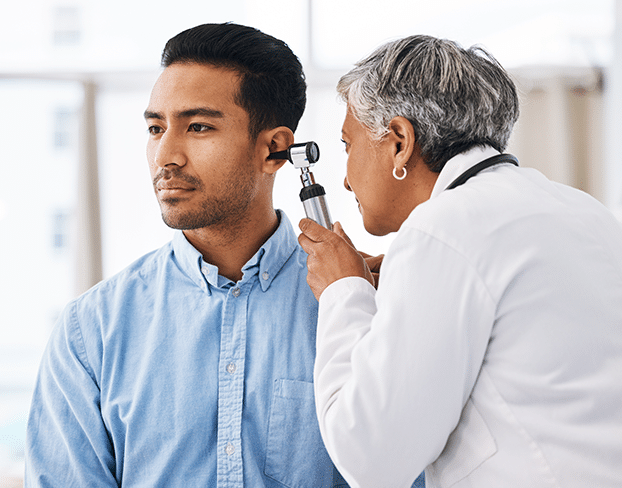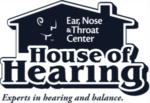The Impact of Hearing Loss on Overall Health
You may think hearing loss only impacts your ability to hear clearly. However, when left untreated, hearing loss can affect your overall health including communication, balance, and cognitive function. If you suspect you have hearing loss, it’s important to schedule a hearing check-up to catch the signs early. This way you can preserve your hearing for longer and stay healthy.
Hearing loss can be an indicator of another underlying health condition, such as heart disease, high blood pressure, or diabetes. For this reason, we encourage patients to schedule regular screenings to prevent any of these conditions from affecting your hearing.
Signs of Hearing Loss
The most common type of hearing loss is presbycusis, which is age related. This type of loss can be difficult to recognize at times because it often occurs slowly, over the course of a few years. If you have gradually noticed a decline in your hearing ability, then you should schedule a hearing exam.
Some common symptoms of hearing loss to be aware of include:
- Sounds seem muffled
- It’s difficult to hear conversation where there is background noise
- You can hear but you lack clarity
- Women and children’s voices are harder to hear
- You frequently ask people to repeat themselves
- You miss parts of the conversation
- You hear a constant ringing in the ears

Age-Related Hearing Loss

As we age, the hair cells inside the inner ear – which are responsible for hearing – begin to naturally deteriorate. This is known as presbycusis or age-related hearing loss. Studies have shown there is an increase in cognitive decline in patients who have untreated hearing loss compared to those with normal hearing. Over time, hearing loss can affect our ability to make sense of the sounds around us. This makes it harder for the brain to process information and can eventually lead to listening fatigue, forgetfulness, and cognitive decline.
It can be challenging at first coping with hearing loss, but with the right support, you can regain your hearing ability.
Hearing aids are a great presbycusis treatment option as they can provide you with clarity and understanding in difficult hearing situations. Our team of audiologists and hearing specialists can recommend the right hearing aids to help you hear better.
Tinnitus
Have you ever heard a buzzing, ringing, or crackling sound in your ears when there are no other noises present? You may have tinnitus. Tinnitus sounds can vary from person to person and can be debilitating for those who hear the sounds on a constant basis.
At House of Hearing, we have certified tinnitus specialists who can diagnose tinnitus and recommend treatment options to help alleviate your perception of it.
Tinnitus FAQs
Why do I have tinnitus?
A common cause of tinnitus is frequent exposure to loud noise. Other causes can include earwax, hearing loss, stress, medications, head injuries, and other neurological diseases. Patients with vertigo or ear pressure may also experience tinnitus.
Does tinnitus go away on its own?
While it can be disruptive to your sleep and general well-being, 50% of sufferers find that their tinnitus does taper off with time.
Are there different types of tinnitus?
Yes, there are two types of tinnitus: subjective and objective.
Subjective tinnitus is when only you can hear it – also known as tonal tinnitus. This is due to a problem with your outer, middle, or inner ear. Occasionally, there can be a problem with the hearing nerve or the brain is struggling to interpret signals as sound.
Objective tinnitus is when others can hear what you are hearing. This is rare and will require a longer form of treatment. Causes include blood vessels located near the ear, the small bones situated in the middle ear, or muscle contractions.
What should I do now?
If your tinnitus is disrupting your life, you should schedule an appointment. We can explore fitting you with a tinnitus masker and discuss treatment options in more detail.

